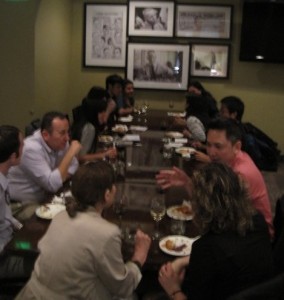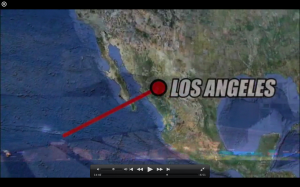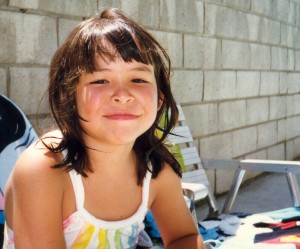When I’m not working on my dissertation, I’m usually planning some sort of event. A panel on student health care. A launch party for Kaya Press. A graduate student government senate meeting. Luckily, I actually get paid to put on these events, so it’s actually a good gig to have while in grad school. But very rarely do I actually get to organize an event that’s relevant to my research — a much more rewarding experience. I’m still enjoying the endorphin high that comes from building a temporary community of like-minded people around a topic of shared interest. Ana, Neta, and I have been planning this two-day Dornsife Commons symposium “(Re)collections: Trauma, Collective Memory, and the Archive” for over a year and a half.
Friday was a tour of the Shoah Foundation Institute headquarters followed by a demonstration of how to access the digital archive, and Saturday was a panel featuring USC superstars Josh Kun and Viet Nguyen, along with special guests Oren Meyers and Dan Leshem. After a delicious lunch, we reconvened for a workshop led by performance artists Denise Uyehara and Erin O’Brien. I think every academic symposium should begin with a performance workshop, not only because it’s a different way of encountering the object of study (i.e., embodied action) but also because it breaks down barriers between undergrads, grad students, professors, and community members. Interacting through performance is a great equalizer, establishing a horizontal platform for exchange and discussion.
Here’s a breakdown of the most valuable lessons from yesterday:
- your research project is an act of love (Denise Uyehara)
- all wars are fought twice – the first on the battlefield, the second in memory (Viet Nguyen)
- testimony is an act of translation (Dan Leshem)
- “History sounds different when you know where to start listening” (Josh Kun)
This symposium helped me think through the creation of my own archive that I’m making through my own research project, as well as what objects would exist in an archive of the Mesoamerican genocide. I also tried tweeting during the symposium as practice for the big CAA conference coming up. I love the idea of real-time sharing, as well as creating a virtual archive of my thoughts during talks.




